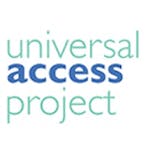Many of her classmates dropped out of school when they got pregnant. But Irene chose a different path. From workshops on sexual education, to launching her own organization, she now helps other young Rwandan women facing tough sexual health decisions. When we #UniteforHealth we ensure women have information and services they need to make the right choices for their families.
Irene’s story could take place anywhere in the world. Like many children — girls and boys alike — when she was young, she wanted to know more about the facts of life. “I grew up in Rwanda in a family of seven children,” she says. “When I was young, I was so curious to know more about family planning and sexual education, but I did not have any source to get information.”
Her parents, like many, rarely talked about sex. For them it went against the culture of their community and village; for lots of other parents all over the world, it’s just plain hard to do.
At school Irene saw some of her classmates drop out when they got pregnant. She saw the impact it had on their lives, and she decided she wanted a different path for herself. Irene started attending workshops and reading books about sexual and reproductive health and rights, including family planning.
From there, she started volunteering at a local organization, Rwanda Youth Clubs for Peace, which helps educate young people about their rights. She still volunteers there now.
“As a young person, it was not easy in the beginning because some people did not understand how a young girl can say something important about family planning,” she remembers.
FAMILY PLANNING FOR ALL WOMEN
Irene is one of many young people around the world advocating in their communities for comprehensive sexual and reproductive health and rights for all. There’s a huge demand for their voices and their work. An estimated 20 million young women want to prevent pregnancy but are not using a modern form of contraception.
COVID-19 is making access to contraceptives even more challenging for many, and it’s been estimated that reduced access to contraceptives during a six-month lockdown could lead to up to 7 million unintended pregnancies.
The evidence is clear: When women are able to plan their pregnancies, their families are happier and healthier. If we all want to recover better from the pandemic, it’s essential to make sure women have access to family planning education and services, so they can make the right choices for their families.
BENEFITS TO THE COMMUNITY
Now 20, Irene persevered in her work. She founded a club called the Huguka Club, which is dedicated to raising awareness about sexual education, including family planning options, in her home district of Musanze.
She says she has seen awareness of family planning options increase in her community, thanks in large part to the Huguka Club. She also reports the number of girls experiencing unwanted pregnancy has decreased.
“I decided to advocate for family planning because it is a crucial issue,” she says, “and a barrier many people face in achieving their future development.”
Now more than ever it’s vital that we all do our part to help protect the progress already made on health and strengthen health systems so they work for everyone.
We are all safer and stronger when we #UniteforHealth. Support the UN Foundation’s work to deliver health for all.
Thanks to the Universal Access Project for contributing this story.




 View All Blog Posts
View All Blog Posts


